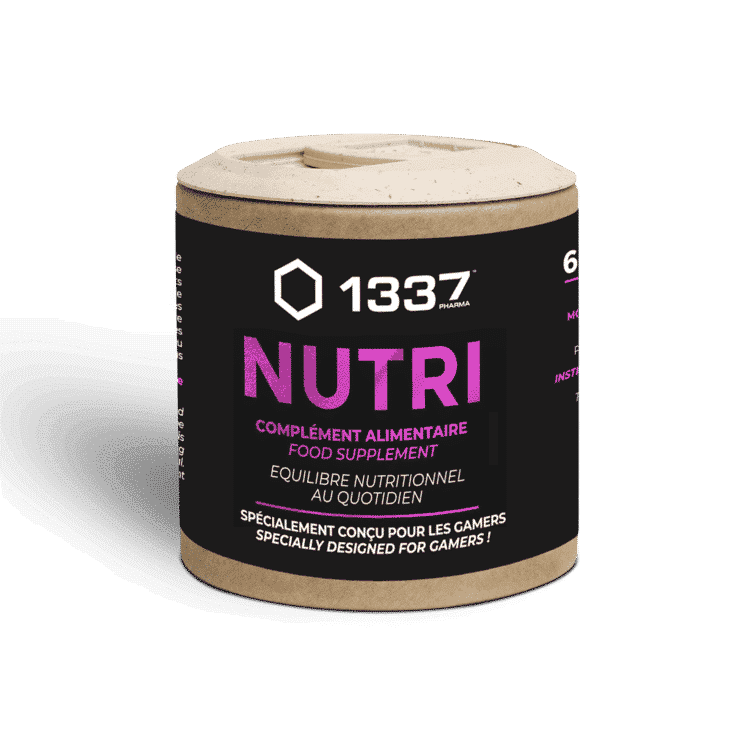VITAMIN B9
Ingredient
What is Vitamin B9?
Where does it come from?
Why is it used?
What are the benefits?
Bibliography
What is Vitamin B9?
Since your body cannot make folate, you must get it from your diet.
(CDC, 2021a; Food Additives Permitted for Direct Addition to Food for Human Consumption; Folic Acid, 2016)
Where does it come from?
Some foods naturally contain folate. Folic acid is added to foods such as flour, ready-to-eat breakfast cereals and breads. You can also get folic acid from dietary supplements (Khan & Jialal, 2022)
Why is it used?
a) Prevention of congenital anomalies and pregnancy complications
Folic acid supplements can help prevent neural tube irregularities, including spina bifida and anencephaly. Consuming enough folic acid during pregnancy can reduce your baby’s risk of being born with one of these conditions (CDC, 2021b; US Preventive Services Task Force et al., 2017)
Folic acid supplements not only help prevent fetal development problems, but also reduce the risk of pregnancy complications, such as preeclampsia (Liu et al., 2018)
b) Preserve brain health
Low blood folate levels are linked to poor mental function and an increased risk of dementia. Even technically normal but low folate levels can increase the risk of mental retardation in older people.
Adequate folate intake may also help protect against Alzheimer’s disease (Jang et al., 2019; Zhang et al., 2021)
In a 2019 study of 180 adults with mild cognitive impairment, taking 400 mcg of folic acid supplements daily for two years improved measures of brain function and reduced blood levels of proteins implicated in the disease. Alzheimer’s (Ma et al., 2019)
Another study involved 121 people with newly diagnosed Alzheimer’s disease treated with the drug donepezil (Aricept).
Those who also took 1,250 mcg of folic acid daily for 6 months had better thinking ability and less inflammation than those who took Aricept alone (Chen et al., 2016)
c) Treating Mental Health Disorders
Folate is involved in the production of brain chemicals called neurotransmitters. Insufficient intake of folate has been linked to depression, schizophrenia and other mental health disorders.
For example, people with depression may have lower blood levels of folate than people without depression (Bender et al., 2017)
A review of 2022 studies suggests that folic acid and folate supplements may help reduce symptoms of mental disorders such as postpartum depression, schizophrenia and bipolar disorder (Lam et al., 2022)
Taking folate supplements in addition to antidepressant medication may reduce symptoms of depression more than taking antidepressant medication alone (Roberts et al., 2018)
An analysis of seven studies found that treatment with folate supplements and antipsychotic medication can improve symptoms in people with schizophrenia more than antipsychotic medication alone (Sakuma et al., 2018)
d) Reduce risk factors for heart disease
Folate supplements, including folic acid, may help improve heart health and reduce the risk of heart disease.
High levels of the amino acid homocysteine are thought to increase the risk of heart disease. Since folate contributes to the breakdown of homocysteine, low folate levels can lead to high homocysteine levels, also known as hyperhomocysteinemia.
Folic acid supplements may help lower homocysteine levels and may reduce the risk of heart disease (Li et al., 2016)
For example, an analysis including 30 studies with more than 80,000 total participants showed that folic acid supplementation led to a 4% reduction in the overall risk of heart disease and a 10% reduction in the risk of stroke (Li et al., 2016)
Additionally, using folic acid supplements along with antihypertensive drugs can lower blood pressure significantly more than antihypertensive drugs alone. Folic acid supplements may also improve blood vessel function in people with heart disease (Balmain et al., 2018; Wang et al., 2017)
e) Other possible benefits
Folic acid supplements may also help treat these other health conditions:
➢ Diabetes. Folic acid supplements may help improve blood sugar regulation and reduce insulin resistance in people with diabetes. As the diabetes drug metformin can reduce folate levels, you may need a supplement if your levels are low (Asbaghi, Ashtary-Larky, Bagheri, Moosavian, Olyaei, et al., 2021; Valdés -Ramos et al., 2015; Zhao et al., 2018)
➢ Fertility problems. Folate can improve the quality of eggs and promote their growth and implantation in the uterus. Taking folate can increase the chances of getting pregnant and carrying a baby to term. People who use assisted reproductive technologies to conceive may be more likely to have a baby if they have a higher intake of supplemental folate (Gaskins et al., 2014; GASKINS & CHAVARRO, 2018)
➢ Ignition. Inflammation plays a major role in many diseases. Folic acid and folate supplements have been shown to reduce markers of inflammation such as C-reactive protein (Asbaghi, Ashtary-Larky, Bagheri, Moosavian, Nazarian, et al., 2021)
➢ Kidney diseases. The kidneys generally filter waste products from the blood, but when the kidneys are damaged, homocysteine can build up. About 85% of people with chronic kidney disease have too much homocysteine in their blood. Folic acid supplements may help reduce homocysteine levels and risk of heart disease in people with kidney disease (Cianciolo et al., 2017)

What are the benefits?
Discover other plants used in our products
Bibliography
1. Asbaghi, O., Ashtary-Larky, D., Bagheri, R., Moosavian, SP, Nazarian, B., Afrisham, R., Kelishadi, MR, Wong, A., Dutheil, F., Suzuki, K ., & Alavi Naeini, A. (2021). Effects of Folic Acid Supplementation on Inflammatory Markers: A Grade-Assessed Systematic Review and Dose–Response Meta-Analysis of Randomized Controlled Trials . Nutrients, 13(7), 2327. https://doi.org/10.3390/nu1307232 7
2. Asbaghi, O., Ashtary-Larky, D., Bagheri, R., Moosavian, SP, Olyaei, HP, Nazarian, B., Rezaei Kelishadi, M., Wong, A., Candow, DG, Dutheil, F ., Suzuki, K., & Alavi Naeini, A. (2021). Folic Acid Supplementation Improves Glycemic Control for Diabetes Prevention and Management: A Systematic Review and Dose-Response Meta-Analysis of Randomized Controlled Trials . nutrients,
13(7), 2355. https://doi.org/10.3390/nu13072355
3. Balmain, BN, Jay, O., Morris, NR, Stewart, GM, Shiino, K., McFarland, AJ, Jayasinghe, R., Chan, J., & Sabapathy, S. (2018). Folic acid supplementation improves vascular endothelial function, yet not skin blood flow during exercise in the heat, in patients with heart failure. American Journal of Physiology-Regulatory, Integrative and Comparative Physiology, 315(4), R810-R819.
https://doi.org/10.1152/ajpregu.00132.2018
4. Bender, A., Hagan, KE, & Kingston, N. (2017). The association of folate and depression: A meta-analysis . Journal of Psychiatric Research, 95, 9‐18. https://doi.org/10.1016/j.jpsychires.2017.07.019
5. CDC. (2021a, April 19). Folic Acid. Centers for Disease Control and Prevention . https://www.cdc.gov/ncbddd/folicacid/about.html
6. CDC. (2021b, September 1). Folic Acid Helps Prevent Serious Birth Defects of the Brain and Spine. Centers for Disease Control and Prevention. https://www.cdc.gov/ncbddd/folicacid/features/folic-acid-helps-prevent-some-birth-defects.html
7. Chen, H., Liu, S., Ji, L., Wu, T., Ji, Y., Zhou, Y., Zheng, M., Zhang, M., Xu, W., & Huang, G. (2016). Folic Acid Supplementation Mitigates Alzheimer’s Disease by Reducing Inflammation: A Randomized Controlled Trial. Mediators of Inflammation, 2016, 5912146. https://doi.org/10.1155/2016/5912146
8. Cianciolo, G., De Pascalis, A., Di Lullo, L., Ronco, C., Zannini, C., & La Manna, G. (2017). Folic Acid and Homocysteine in Chronic Kidney Disease and Cardiovascular Disease Progression: Which Comes First? Cardiorenal Medicine, 7(4), 255-266. https://doi.org/10.1159/000471813
9. Food Additives Permitted for Direct Addition to Food for Human Consumption; Folic acid . (2016, April 15). Federal Register. https://www.federalregister.gov/documents/2016/04/15/2016-08792/food-additives-permitted-for-direct-addition-to-food-for-human-consumption-folic-acid
10. Gaskins, AJ, Afeiche, M., Wright, DL, Toth, TL, Williams, PL, Gillman, MW, Hauser, R., & Chavarro, JE (2014). Dietary Folate and Reproductive Success Among Women Undergoing Assisted Reproduction. Obstetrics and gynecology, 124(4), 801-809. https://doi.org/10.1097/AOG.0000000000000477
11. GASKINS, AJ, & CHAVARRO, I (2018). Diet and Fertility: A Review. American journal of obstetrics and gynecology, 218(4), 379-389. https://doi.org/10.1016/j.ajog.2017.08.010
12. Jang, S., Han, JW, Shin, J., Kim, TH, Kwak, KP, Kim, K., Kim, BJ, Kim, SG, Kim, JL, Kim, TH, Moon, SW, Park , JY, Park, JH, Byun, S., Suh, SW, Seo, J., So, Y., Ryu, S.-H., Youn, JC, … Kim, KW (2019). Normal-But-Low Serum Folate Levels and the Risks for Cognitive Impairment. Psychiatry Investigation, 16(7), 532-538. https://doi.org/10.30773/pi.2019.05.29
13. Khan, KM, & Jialal, I. (2022). Folic Acid Deficiency. In StatPearls[Internet] . StatPearls Publishing. https://www.ncbi.nlm.nih.gov/books/NBK535377/
14. Lam, NSK, Long, XX, Li, X., Saad, M., Lim, F., Doery, JC, Griffin, RC, & Galletly, C. (2022). The potential use of folate and its derivatives in treating psychiatric disorders: A systematic review. Biomedicine & Pharmacotherapy, 146, 112541. https://doi.org/10.1016/j.biopha.2021.112541
15. Li, Y., Huang, T., Zheng, Y., Muka, T., Troup, J., & Hu, FB (nd). Folic Acid Supplementation and the Risk of Cardiovascular Diseases: A Meta‐Analysis of Randomized Controlled Trials. Journal of the American Heart Association, 5(8), e003768. https://doi.org/10.1161/JAHA.116.003768
16. Liu, C., Liu, C., Wang, Q., & Zhang, Z. (2018). Supplementation of folic acid in pregnancy and the risk of preeclampsia and gestational hypertension: A meta-analysis. Archives of Gynecology and Obstetrics, 298(4), 697-704. https://doi.org/10.1007/s00404-018-4823-4
17. Ma, F., Li, Q., Zhou, X., Zhao, J., Song, A., Li, W., Liu, H., Xu, W., & Huang, G. (2019) . Effects of folic acid supplementation on cognitive function and Aβ-related biomarkers in mild cognitive impairment: A randomized controlled trial. European Journal of Nutrition, 58(1), 345-356. https://doi.org/10.1007/s00394-017-1598-5
18. Office of Dietary Supplements—Folate. (nd). Retrieved July 1, 2022, from https://ods.od.nih.gov/factsheets/Folate-HealthProfessional/
19. Roberts, E., Carter, B., & Young, AH (2018). Caveat emptor: Folate in unipolar depressive illness, a systematic review and meta-analysis. Journal of Psychopharmacology, 32(4), 377-384. https://doi.org/10.1177/0269881118756060
20. Sakuma, K., Matsunaga, S., Nomura, I., Okuya, M., Kishi, T., & Iwata, N. (2018). Folic acid/methylfolate for the treatment of psychopathology in schizophrenia: A systematic review and meta-analysis. Psychopharmacology, 235(8), 2303-2314. https://doi.org/10.1007/s00213-018-4926-4
21. US Preventive Services Task Force, Bibbins-Domingo, K., Grossman, DC, Curry, SJ, Davidson, KW, Epling, JW, García, FAR, Kemper, AR, Krist, AH, Kurth, AE, Landefeld, CS , Mangione, CM, Phillips, WR, Phipps, MG, Pignone, MP, Silverstein, M., & Tseng, C.-W. (2017). Folic Acid Supplementation for the Prevention of Neural Tube Defects: US Preventive Services Task Force Recommendation Statement . JAMA, 317(2), 183. https://doi.org/10.1001/jama.2016.19438
22. Valdés-Ramos, R., Ana Laura, G.-L., Elina, M.-CB, & Donají, B.-AA (2015). Vitamins and Type 2 Diabetes Mellitus. Endocrine, Metabolic & Immune Disorders Drug Targets, 15(1), 54-63. https://doi.org/10.2174/1871530314666141111103217
23. Wang, W.-W., Wang, X.-S., Zhang, Z.-R., He, J.-C., & Xie, C.-L. (2017). A Meta-Analysis of Folic Acid in Combination with Anti-Hypertension Drugs in Patients with Hypertension and Hyperhomocysteinemia. Frontiers in Pharmacology, 8, 585. https://doi.org/10.3389/fphar.2017.00585
24. Zhang, X., Bao, G., Liu, D., Yang, Y., Li, X., Cai, G., Liu, Y., & Wu, Y. (2021). The Association Between Folate and Alzheimer’s Disease: A Systematic Review and Meta-Analysis. Frontiers in Neuroscience, 15. https://www.frontiersin.org/article/10.3389/fnins.2021.661198
25. Zhao, JV, Schooling, CM, & Zhao, JX (2018). The effects of folate supplementation on glucose metabolism and risk of type 2 diabetes: A systematic review and meta-analysis of randomized controlled trials . Annals of Epidemiology, 28(4), 249-257.e1. https://doi.org/10.1016/j.annepidem.2018.02.001 / https://doi.org/10.1359/JBMR.041018

